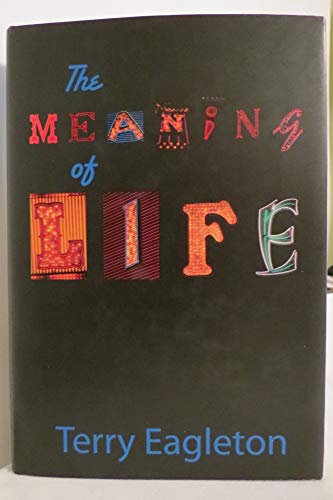

His approach despite being that of Marxist tradition is open to new critical traditions such as structuralism, psychoanalysis, and deconstruction. He views that no literary or artistic work is apolitical since it serves the interests of the ruling class of society. He reflects on theory as essentially political. This compatibility becomes possible because modern literary theories are somehow a reaction against the ideas of New Criticism such as literary texts are autonomous and self-contained.Įagleton’s work Literary Theory: An Introductionis a study of literary approaches. It is not something separate from life, but what makes it worth living-that is, a certain quality, depth, abundance and intensity of life.However, he, in his writing, considers other critical trends that become compatible with his Marxism. He argues instead that the meaning of life is not a solution to a problem, but a matter of living in a certain way.

Eagleton probes this view of meaning as a kind of private enterprise, and concludes that it fails to holds up. On the other hand, Eagleton notes, many educated people believe that life is an evolutionary accident that has no intrinsic meaning. But instead of tackling it head-on, many of us cope with the feelings of meaninglessness in our lives by filling them with everything from football to sex, Kabbala, Scientology, "New Age softheadedness," or fundamentalism. He suggests, however, that it is only in modern times that the question has become problematic. But in this spirited Very Short Introduction, famed critic Terry Eagleton takes a serious if often amusing look at the question and offers his own surprising answer.Įagleton first examines how centuries of thinkers and writers-from Marx and Schopenhauer to Shakespeare, Sartre, and Beckett-have responded to the ultimate question of meaning. The phrase "the meaning of life" for many seems a quaint notion fit for satirical mauling by Monty Python or Douglas Adams.


 0 kommentar(er)
0 kommentar(er)
